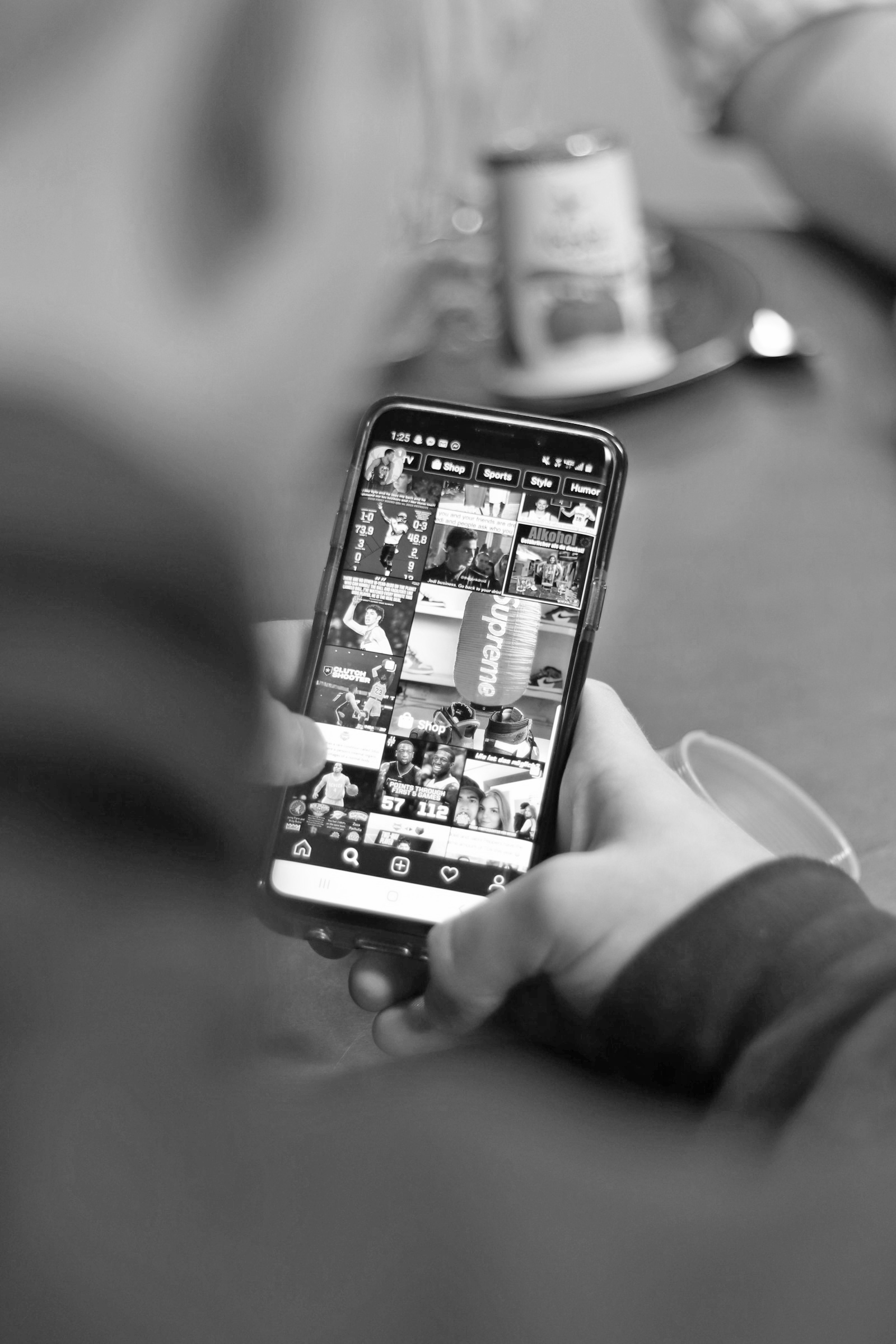Think back to the technology you used as a kid and how much joy it brought you. Gameboy, Webkinz, Nintendo DS, or your super slick flip phone just to name a few. The one thing missing back then was your smartphone filled with social media apps.
New technology has a lot of benefits, it has one huge drawback that may be affecting people without them being aware of it – the impact on mental health.
Gustavus has been working to combat mental illness here on campus.
Dean of Students and Vice President for Student Life JoNes VanHecke recently sent out an email regarding the strategic plan, and it stated that it will focus on better understanding how to change the trajectory of mental illness through five programs happening throughout the year which highlight the five core values of Gustavus.
Yes, using technology to talk to relatives on the phone, look at pictures of Nemo on campus and urgently text your mom for advice may improve your mood drastically. But, it is specifically social media on our smartphones that is the main culprit for dampening spirits and mental health.
Of course, taking away all social media is not an option, but being aware of how it is changing thought processes is the first step. Ironically, the one thing that causes problems can also be used to take those problems away.
It is ironic how social media is supposed to make us more connected, but it is actually making us lonelier. Humans are meant to have interaction, and loneliness is one of the main risk factors to mental illness. Because we have phones, it gives us no reason to go talk to our friend all the way in Chapel View in person, but it doesn’t replace face-to-face communication.
Even more so, hugging a significant other through the phone does not feel the same as in person.
Even though “social” may be in the name of social media, there is nothing social about sitting in your room all alone while laughing to yourself about a cat video on Tik Tok.
On a given day, many of us could spend hours scrolling through Instagram, Snap stories, Facebook, Pinterest, and Twitter, but things like class, sports, and eating meals get in the way of our mind numbing content. When you think about it, it probably used to be the other way around.
In addition, hiding behind a phone allows for less time to develop communication skills, which leads to more anxiety towards things like talking to professors in person, saying hi to a crush in the caf, calling someone on the phone, or, dare I say it- leaving a voicemail. Even I admit that I am falling victim to being comfortable hiding behind my smart phone, as I would never go ring the doorbell of my friend’s house and ask if they could hang out like I used to before I knew what a smart phone was.
When it comes to mental health, social comparison is the enemy. In general psychology, social comparison theory is one of the first things learned and is the reason some of us may feel like we have to look or act a certain way. The definition of social comparison theory on Psychology Today states that “individuals determine their own social and personal worth based on how they stack up against others they perceive as somehow faring better or worse.” When scrolling through Instagram and seeing people with perfect bodies, successful relationships, or luxury vacations, our brains immediately tell us that they have what we don’t. Even on an app like LinkedIn, which seems to be harmless, can be intimidating because seeing those who have great careers, can be hard when maybe you are in a transition. This is extremely harmful to mental health as it tells us that who we are is not enough or our gifts aren’t enough.
It is taught in Abnormal Psychology that low self-esteem and self-doubt are huge risk factors due to negative self-talk. Social media thrives off the fact that we feel we have to portray ourselves to make it look like we are living our best lives, all while bottling up the negative feelings we may have just to keep that reputation. Just like storing a half-eaten sandwich in your dorm room for months has negative effects, so does storing emotions and who you really are due to social comparison.
Even though technology has been linked to decreasing mental health, there is some technology out there that improves mental health. Gustavus already has resources on campus that could help brighten people’s day – quite literally. The HappyLight lamps in the library mimic sunlight in order to combat seasonal depression. Recently, a Minnesota native was featured on Shark Tank for her light therapy lamps. She claimed that just 15 minutes in front of this lamp a day improves mental health. Due to the fact that she has made a huge profit on these, it shows that many people struggle with mental health, but also, that these lamps have positive results.
Second, you may have seen advertisements for Learn to Live, which is a free counseling resource online. This was made for those who are not comfortable communicating face-to -face with someone (possibly thanks to social media and less communication skills), but also makes it accessible to students at any time. Social media on our smartphones will always continue to tell us what we are not, but once we out smart our smartphones and use technology in beneficial ways, mental health will likely follow suit.

This was an excellent blog post